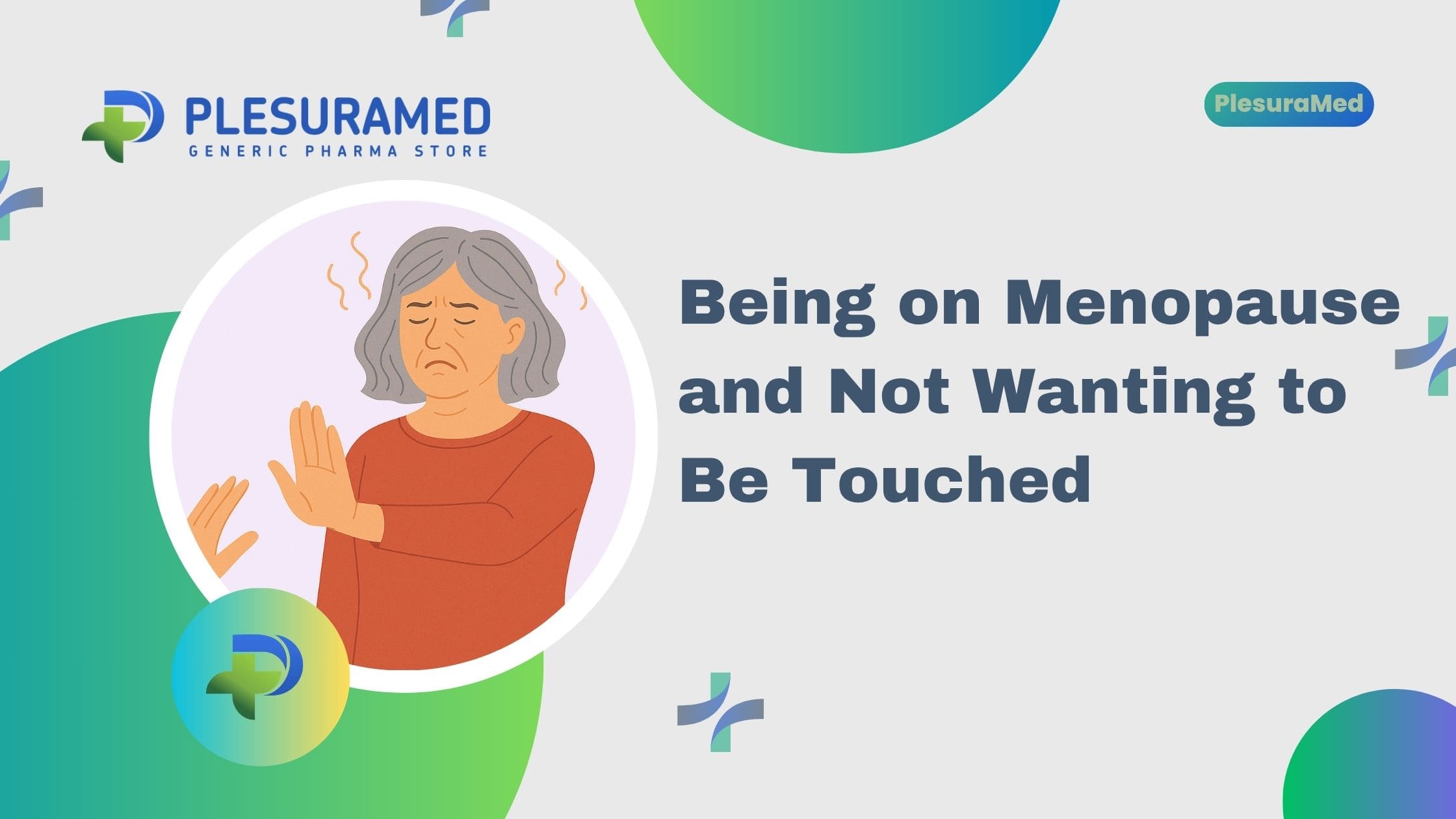Being on Menopause and Not Wanting to Be Touched

The menopause represents a key episode in a woman’s life, which affects women in many ways. One of the hardly ever mentioned parts of this event is the wish to have personal space and a weaker impulse for a physical touch. This article investigates the link between menopause and the desire for “me time”, giving the necessary understanding of this problem that is common, yet unrecognized by many people.

Menopause is a naturally occurring biological process that marks the cessation of a woman’s reproductive years.It often happens between the ages of 45 and 55. Throughout this period, the body goes through a lot of changes due to hormonal imbalances, particularly the lowering of estrogen and progesterone levels. These alterations may cause a variety of physical and emotional problems.
The Effects of Hormone Changes on Touch Sensitivity
During menopause, hormonal changes can affect a woman’s tactile sensibility in different ways such as:
- Enhanced skin sensitivity
- Alterations in body temperature regulation
- Changes in nerve responses
- Emotionally affected behavior and mood swings
These agents suggest tempering of physical social connections or solidarity as the effort of coping with these significant life changes. Alongside these factors, we can bear in mind the complexity brought about by emotional variation, which is very normal.
Is It Normal to Want to Be Alone During Menopause?
Time alone during menopause is one of the things that give the most comfort. For example, These can be because of the following factors:
- Emotional Processing: Women might want some time to think over the changes they are experiencing.
- Physical Discomfort: Other signs like hot flashes and night sweats may make it difficult for the partner to get in touch physically.
- Mood changes: Gross irritability or unease may cause psychological refuge thereby creating a demand for some personal space.
- Healthcare: Many women see alone time as a way of caring for themselves by doing activities that they can only do while alone.
Note that solitary time is perfectly normal during this period of womanhood, but if you feel chronically isolated or despondent one should consult with your healthcare provider to find a better solution.
Emotional Detachment: The Relationship of Menopause to The Problem
Emotional detachment at menopause can come in many forms like:
- Negative emotional sensations diminish the intensity of physical intimacies and love relationships
- The partners or children can cleave to someone else who is not from the household
- The over-all factors of the withdrawal of emotions can often be ascribed to the changes in reproductive hormones and to psychological changes bound up with the new periods of life. However, it is vital to differentiate between temporary emotional shifts and more severe mental health problems.
Read Also : Medical Myth or Reality: Are Menopause Aches and Pains Really Cancer?
Adopted Strategies for Women Subjugating to Touch Aversion
Touch embitterments of the menopause are distinguished by the following solutions:
- Direct talks with loved ones and partners about what they need in particular
- Other forms of intimacy and bonding can be explored
- Alteration in their busy lives with the support of self-care and stress reduction practices
- Qualified personnel such as nurses or psychotherapy can relieve you
- There are even support groups for women facing similar issues that can provide you with the help you need.
Being a Supportive Partner of the Menopausal Woman
Partners of women who are in menopause can help their significant other in different ways. They can be of help by:
- Informing oneself about the conditions, and the ways they can affect your life
- Exercising tolerance and empathy
- Observing personal space necessities and respecting the boundaries
- Creating novel ways for communication, expressing affection and keeping intimacy alive
- Encouraging family members to talk to each other about their feelings and experiences
FAQs
1. How long does touch aversion typically last during menopause?
The period differs from one individual to the other, but it is likely that it will lessen as the hormones stabilize.
2. Can hormone replacement therapy help with touch sensitivity issues?
The hormone treatment can help relieve some symptoms, but there are also potential risks. A doctor can provide you with individualized advice.
3. Are there any natural remedies for managing touch aversion during menopause?
Some people learn to relax in other ways like doing relaxation techniques, yoga exercises, and eating a balanced diet. However, the level of improvement is different among the people.
4. How can I communicate my need for personal space to my partner without causing hurt?
The main point is simple communication. Articulate your feelings calmly and clearly, stating that it concerns only the matter of physicality, not the quality of your relationship.
5. Is it possible for touch aversion to affect relationships with children or friends?
Granted, it can lead to a troubled state of many relations. First, make sure to reveal the situation to your family and friends and, second, find other forms of showing affection as well as sustaining relations.

